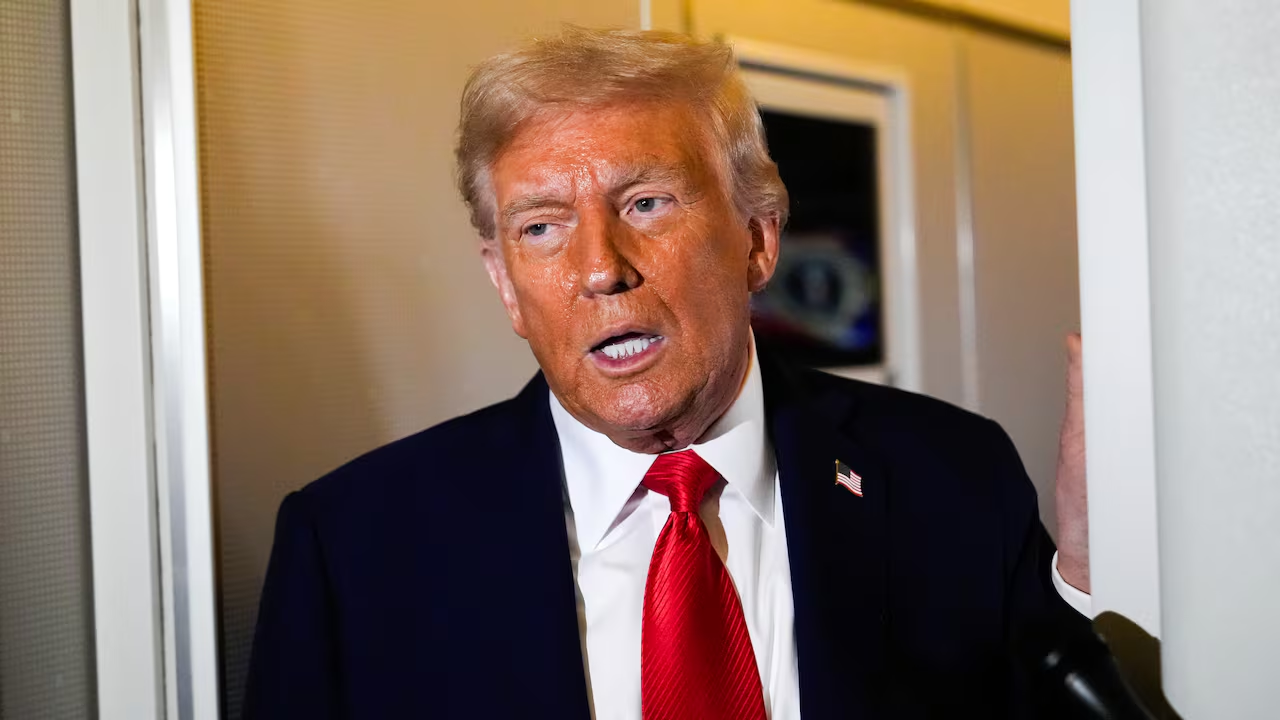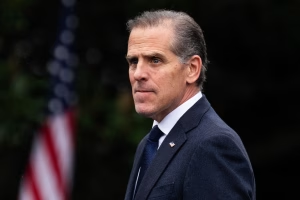President Donald Trump has intensified his public feud with Georgia Representative Marjorie Taylor Greene, labeling her a “traitor” after she refused to back down in her campaign for the release of the Jeffrey Epstein files. The spat has become one of the most high-profile and incendiary conflicts within the Republican Party in recent months, exposing tensions between Trump loyalists and lawmakers willing to challenge the former president on controversial matters.
The dispute first flared after Greene openly criticized the White House for dismissing the Epstein case as a “Democrat hoax.” Despite previously being one of Trump’s most ardent supporters, Greene has emerged as a vocal advocate for transparency regarding Epstein’s activities and those of his associates. In response, Trump launched a series of posts on Truth Social, attacking Greene’s character and loyalty.
“Marjorie ‘Traitor’ Green is a disgrace to our GREAT REPUBLICAN PARTY!” Trump wrote, accusing Greene of betraying both him personally and the broader Republican Party. In subsequent posts, he amplified the criticism, suggesting that Greene had abandoned conservative principles and become a “RINO”—a Republican In Name Only. Trump mocked her for her appearances on media outlets he deemed “pathetic” and questioned her effectiveness as a legislator, drawing comparisons to other Republicans he believes have strayed from party orthodoxy.
Greene responded sharply, framing Trump’s attacks as evidence of what the Epstein files might contain. She also expressed concern for her personal safety, citing warnings from private security firms about threats directed at her. “I am now being contacted by private security firms with warnings for my safety as a hotbed of threats against me are being fueled and egged on by the most powerful man in the world,” Greene said in a post on X. She emphasized that these threats are reminiscent of prior incidents where aggressive rhetoric against her supporters and herself led to criminal acts.
While Greene defended her position, asserting that she “believe[s] in the American people more than [she] believe[s] in any leader,” she underscored the importance of the Epstein files in holding wealthy elites accountable. “I never thought that fighting to release the Epstein files, defending women who were victims of rape, and fighting to expose the web of rich powerful elites would have caused this, but here we are,” she said. She also called for a “new way forward” in politics, criticizing the “toxic political industrial complex” for fostering division rather than addressing Americans’ real needs.
The dispute has also touched on broader policy disagreements between Greene and Trump. In recent months, she has criticized his administration for prioritizing foreign diplomacy and high-profile trips over domestic issues like healthcare, affordability, and the oversight of H-1B visa programs. Greene has condemned fellow Republicans for allowing Affordable Care Act subsidies to lapse, an issue that contributed to the recent government shutdown negotiations.
Trump, for his part, has claimed that he is no longer taking Greene’s calls—a claim she says is untrue. Greene shared screenshots of text messages she sent to Trump regarding the Epstein files, suggesting that these communications may have triggered his aggressive social media campaign against her. She also contended that Trump’s attacks serve as a warning to other Republicans who might challenge his positions ahead of key votes.
Observers note that the conflict between Trump and Greene highlights ongoing fissures within the Republican Party. Greene, once one of Trump’s most loyal allies, has shifted her stance on multiple issues, including Epstein transparency and domestic policy priorities. This transformation has prompted fierce public exchanges and prompted debate among political commentators about party unity, loyalty, and accountability.
Not everyone has sided with Greene, however. Former Republican Representative Adam Kinzinger criticized her actions, describing her as “the biggest con artist ever” and suggesting that her behavior indicates presidential ambitions. Greene has dismissed such claims as “baseless,” maintaining that her focus remains on the American people and the pursuit of justice.
The feud between Trump and Greene underscores how personal and political grievances can rapidly escalate in the age of social media. Both figures have used platforms like Truth Social and X to air grievances directly to the public, bypassing traditional media filters. This approach has amplified the visibility of their dispute, drawing millions of views and widespread commentary.
For Greene, the Epstein files represent more than just a political issue—they are a matter of principle. She has repeatedly framed her push for transparency as a defense of victims and a challenge to entrenched power structures. In contrast, Trump’s attacks have centered on loyalty, party unity, and the perceived threat that Greene poses to his influence within the Republican Party.
The clash also raises questions about the role of aggressive rhetoric in political discourse. Greene’s security concerns highlight the tangible risks associated with public conflict, particularly when it involves high-profile figures and highly charged topics. Meanwhile, Trump’s approach illustrates how former presidents can wield significant influence over both party politics and media narratives, shaping the behavior of other politicians and framing disputes in starkly personal terms.
Analysts suggest that this feud may continue to evolve as both parties navigate upcoming votes and political developments. Greene’s insistence on the Epstein files and Trump’s public denouncements are likely to remain central talking points for supporters and critics alike. The episode has already demonstrated how individual disagreements can resonate broadly, shaping public perception and influencing party dynamics well beyond the immediate actors involved.
Ultimately, the feud between Donald Trump and Marjorie Taylor Greene is emblematic of larger tensions within contemporary American politics, where loyalty, ideology, and media exposure intersect in complex and often unpredictable ways. As both figures continue to leverage social media to assert their positions, the dispute over the Epstein files may become a defining moment in discussions about accountability, transparency, and the limits of political loyalty.
Whether this battle signals a lasting rupture within the Republican Party or simply another high-profile episode in an era of relentless online political conflict remains to be seen. For now, Trump and Greene are locked in a war of words that has captivated national attention, illustrating both the personal stakes and public consequences of political dissent in the modern era.

Emily Johnson is a critically acclaimed essayist and novelist known for her thought-provoking works centered on feminism, women’s rights, and modern relationships. Born and raised in Portland, Oregon, Emily grew up with a deep love of books, often spending her afternoons at her local library. She went on to study literature and gender studies at UCLA, where she became deeply involved in activism and began publishing essays in campus journals. Her debut essay collection, Voices Unbound, struck a chord with readers nationwide for its fearless exploration of gender dynamics, identity, and the challenges faced by women in contemporary society. Emily later transitioned into fiction, writing novels that balance compelling storytelling with social commentary. Her protagonists are often strong, multidimensional women navigating love, ambition, and the struggles of everyday life, making her a favorite among readers who crave authentic, relatable narratives. Critics praise her ability to merge personal intimacy with universal themes. Off the page, Emily is an advocate for women in publishing, leading workshops that encourage young female writers to embrace their voices. She lives in Seattle with her partner and two rescue cats, where she continues to write, teach, and inspire a new generation of storytellers.









